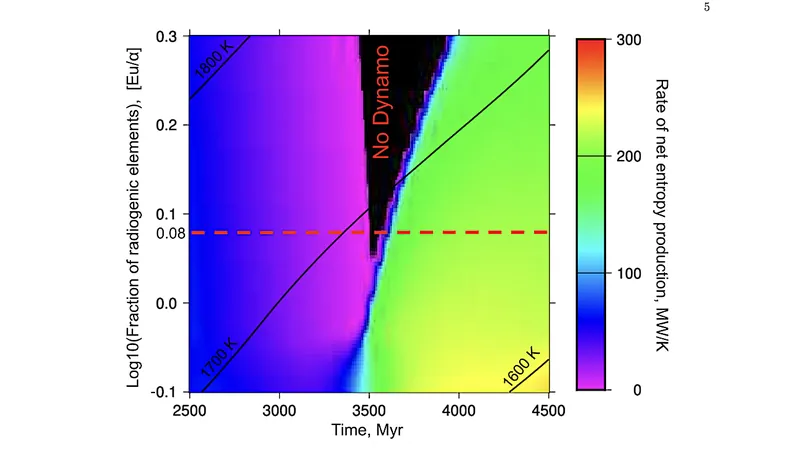
Unveiling Europium's Role in the Milky Way: A Key to Planetary Habitability?
2024-12-02
Author: Mei
Introduction
In a groundbreaking study, researchers have explored the intriguing connection between the distribution of europium (Eu), a rare r-process element, in the Milky Way disk and its implications for the habitability of nearby exoplanets. This research sheds light on how the radioactive decay of thorium (Th) and uranium (U) isotopes, present within planetary mantles, drives geodynamics crucial for maintaining environments conducive to life.
The Study's Focus
The investigation centers on analyzing the stellar photospheric abundances of nearby F, G, and K-type dwarf stars to better understand the thermal evolution of orbiting planets. By examining high-quality spectroscopic data, scientists determined that the intrinsic dispersion of europium in the Milky Way disk is remarkably low, with a scatter of just 0.025 dex. This consistency suggests the potential for stable radiogenic heating in planets surrounding these stars.
Findings on Magnetic Dynamos
One striking finding is the correlation between europium and alpha element abundances, which illuminates the conditions under which planetary magnetic dynamos might fail during periods of stellar evolution. Interestingly, only stars with near-solar metallicity possessed sufficient europium levels to sustain persistent magnetic dynamos on the planets orbiting them. This discovery gives credence to the theory of a "metallicity Goldilocks zone," where just the right conditions may foster planetary habitability.
Insights into R-Processes
Moreover, the study provides significant insights into the nature of r-processes—mechanisms responsible for producing heavy elements—by showing that the production of alpha elements is not directly linked to europium levels. This indicates the possibility of a metallicity-dependent production of r-process elements, possibly in massive core-collapse supernovae or through neutron-star mergers, which have become more dominant in the recent universe.
Conclusion and Future Exploration
This research not only enhances our understanding of how elemental compositions influence planetary conditions but also opens new avenues for identifying potentially habitable exoplanets. Future explorations will likely focus on understanding how different variables influence habitability, giving us a clearer picture of our galaxy’s life-supporting potential.
As scientists continue to unravel the mysteries of the Milky Way, the role of elements like europium will undoubtedly prove crucial in the ongoing search for life beyond our home planet. Stay tuned for more discoveries that could alter our understanding of what it takes for a planet to host life!



 Brasil (PT)
Brasil (PT)
 Canada (EN)
Canada (EN)
 Chile (ES)
Chile (ES)
 España (ES)
España (ES)
 France (FR)
France (FR)
 Hong Kong (EN)
Hong Kong (EN)
 Italia (IT)
Italia (IT)
 日本 (JA)
日本 (JA)
 Magyarország (HU)
Magyarország (HU)
 Norge (NO)
Norge (NO)
 Polska (PL)
Polska (PL)
 Schweiz (DE)
Schweiz (DE)
 Singapore (EN)
Singapore (EN)
 Sverige (SV)
Sverige (SV)
 Suomi (FI)
Suomi (FI)
 Türkiye (TR)
Türkiye (TR)